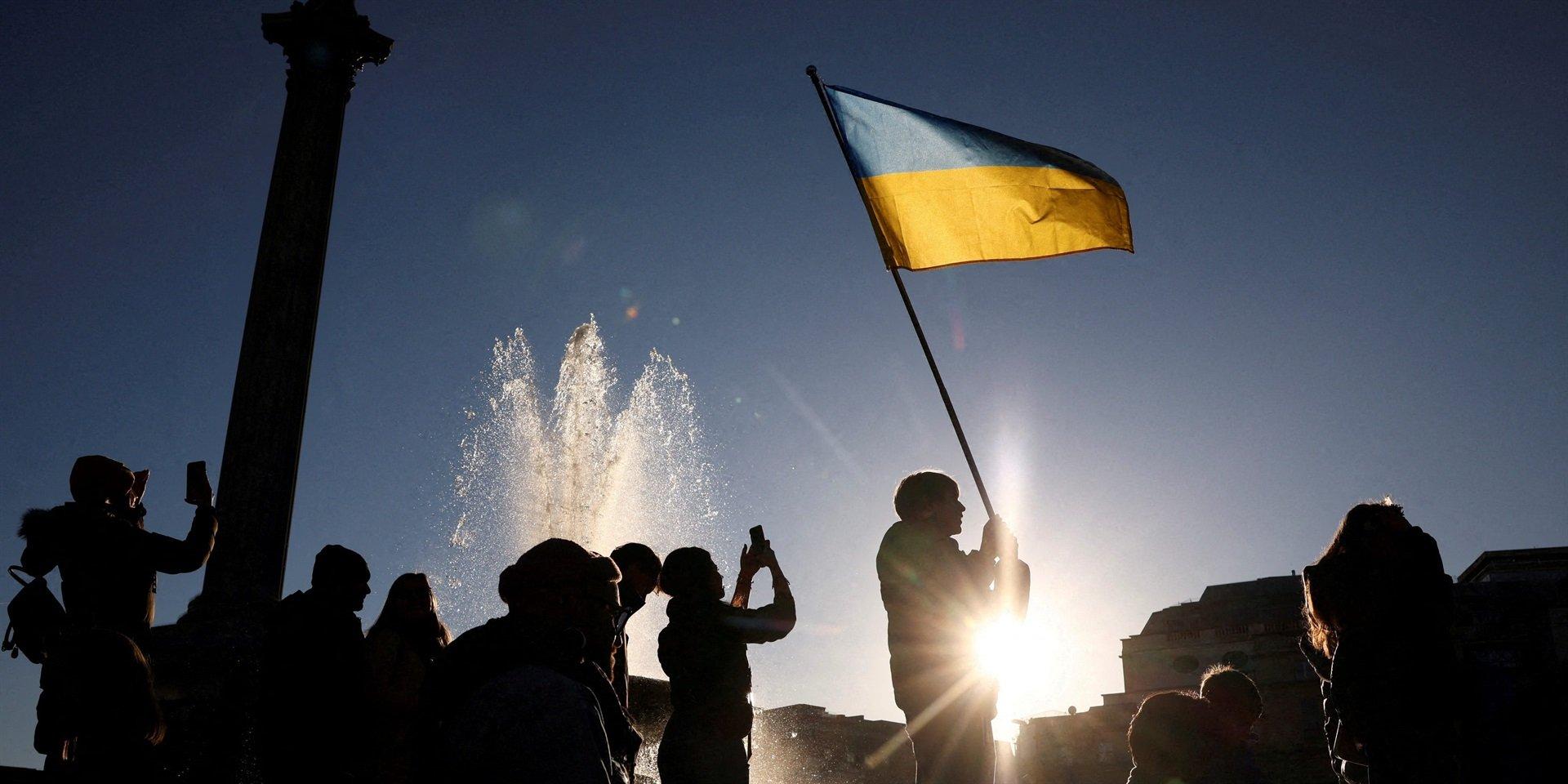
Africa-Press – South-Africa. A mediator walking into this situation has to be cognisant of their responsibilities to the parties and to the dying women and children, and therefore has to draw from as many resources as they can to ensure a successful outcome, writes IJR Head of Peacebuilding Interventions Programme,
Tim Murithi.
Two weeks after the launch of an all-out assault on Ukraine by the forces of the Russian Federation, on 24 February 2022, South African President Cyril Ramaphosa confirmed that he had been requested to play a “mediation role” in the crisis, following a phone call with President Vladimir Putin of Russia.
The veracity of Putin’s intention to negotiate a cessation of hostilities will be evidenced by the actions of the forces of the Russian Federation on the ground. Initial indications are that efforts to mediate this crisis will be fraught with obstacles and challenges, and will test the mettle of even experienced mediators.
Several rounds of talks between the Foreign Ministers, Sergey Lavrov of Russia and Dmytro Kuleba of Ukraine, in Antalya, Turkey, to discuss a peaceful resolution to the conflict have faltered and may continue to do so. Turkey as a member of the NATO alliance, is unlikely to be seen as an impartial mediator, due to the fact that NATO countries are supplying arms to the Ukrainian defence forces and are therefore indirectly implicated in the conflict.
The images of more than 2.5 million Ukrainians, and citizens of other countries, fleeing the Russian assault evoke memories of the millions of people who also fled as refugees from the violence of the First and Second World Wars. The brutality of the Russian attack on Ukraine cannot be questioned and the urgency of a mediation process is self-evident.
Third-party mediator
Mediation is one among several forms of third party intervention that seeks to assist disputing parties to find a mutually acceptable settlement. When two or more parties are in disagreement and their relationship has deteriorated to the point of breaking down, or a deadlock in negotiations arises, it may be useful to refer the matter to a third-party mediator if they genuinely want to address their differences. Mediation can best be thought of as a dynamic and ongoing process that begins with a pre-mediation process and continues up to the post-meditation implementation and monitoring phase.
There is already a series of mediated agreements between Russia and Ukraine, known as the Minsk Agreements, which were negotiated in 2014 and 2015, and which sought to end the war in the Donbas region of Ukraine. This Agreement outlined a number of measures, including a ceasefire, withdrawal of heavy weapons, prisoner release and constitutional reform in Ukraine granting some degree of autonomy to the Donbas region of the country. The fighting never really ended and it has now been utilised as the rationale by Putin to declare the Minsk peace agreement formally terminated.
ALSO READ |
Siya Khumalo: Could NATO’s perceived betrayal push a tired Ukraine towards spite — towards Russia?
The efforts to revitalise the mediation process in the Russian-Ukraine crisis will be an uphill battle. In terms of creating framework conditions for effective processes, successful mediation is more likely to occur when:
i) all parties are receptive to the mediation process and the framework conditions are conducive to a positive outcome;
ii) parties are prepared to brainstorm and accept trade-offs in cases where one issue may be more important to a particular party than another;
iii) parties are prepared to consider creative ways of meeting their interests without undermining the interests of the other parties involved;
iv) the mediators refrain from manipulating interventions to their advantage.
Constructive dialogue
In this regard, the mediator’s role is to help the parties find a way to overcome the deadlocked situation, to reestablish channels of communication if they have broken down and work towards rebuilding the relationship – through promoting more constructive dialogue.
The mediator also assists the parties in clarifying and discussing the key issues and their interests, with regard to each issue, and helping them to explore innovative options for addressing their interests. An important function of the mediator is to ensure that all parties to the mediation do not feel that their dignity is undermined.
On this basis, the ideal mediator needs to be impartial and committed to the principles of fairness and justice for all sides. The extent of the brutality of the Russian assault on Ukraine and the ensuing suffering that is now being endured by millions of innocent civilians, including women and children, suggests that it will take several years for the consequences of the current war to be addressed.
Most analysts note that there does not seem to be a viable end-game to the crisis. Even if Russia occupies and rules Ukraine as a colony, the resistance of the Ukrainian Territorial Defence Forces will still continue, which will continue to conduct counter-insurgency operations indefinitely until the status-quo is re-established.
A mediator walking into this situation has to be cognisant of their responsibilities to the parties and to the dying women and children and therefore has to draw from as many resources as they can to ensure a successful outcome.
Ramaphosa’s experience
Ramaphosa has extensive experience as a negotiator when he led the negotiations with the former white supremacist apartheid regime of South Africa to transition to independence and democracy in 1994. However, if indeed he proceeds with the “mediation role” as he indicated, the effort may prove to be a much more challenging proposition given the international dimensions of the Russian-Ukrainian crisis.
In effect, the mediation will need to treat NATO as a party to the conflict, in a three-way negotiation process, the Ukrainian authorities, and the Russian Federation in order to de-escalate the tension and identify the pathway to reduce and eliminate the conflict.
In addition, the widespread violence in Ukraine has traumatised millions of people the mediated Agreement will need to outline specific transitional justice, psycho-social peacebuilding interventions, and mental health initiatives, to support the victims and survivors of the conflict in Ukraine.
ALSO READ |
Keith Gottschalk: History may explain South Africa’s refusal to condemn Russia’s invasion of Ukraine
The European Union’s Policy Framework on Support to Transitional Justice outlines “a comprehensive approach to transitional justice, with the aim of achieving peaceful, just, and democratic societies based on the rule of law, and respect for human rights, helping to recognise and redress the harms suffered by victims of human rights and international humanitarian law violations”.
In addition, the 2004 UN Secretary-General’s Report on the rule of law and transitional justice in conflict and post-conflict societies prioritises the need to confront and address the effects of large-scale human rights abuses, through systems of accountability and redress in order to pursue justice and reconciliation.
Similarly, the African Union’s Transitional Justice Policy (AUTJP) highlights the importance of “fighting impunity” and “bringing an end to any ongoing violence and removing the threats of further violence impacting the affected population”, through “addressing the legacies of the past violence and oppression, reconstructing broken relationships and finding ways for individuals and communities to live together”.
These frameworks will serve as a useful guide to any actors who are seeking to mediate the Russian-Ukrainian-NATO crisis.
– Prof=essor Tim Murithi is Head of the IJR Peacebuilding Interventions Programme and author of
The Ethics of Peacebuilding published by Edinburgh University Press and editor of the Routledge Handbook of Africa’s International Relations.
To receive Opinions Weekly, sign up for the newsletter here
.
*Want to respond to the columnist? Send your letter or article to [email protected]
with your name and town or province. You are welcome to also send a profile picture. We encourage a diversity of voices and views in our readers’ submissions and reserve the right not to publish any and all submissions received.
Disclaimer:
News24 encourages freedom of speech and the expression of diverse views. The views of columnists published on News24 are therefore their own and do not necessarily represent the views of News24.
For More News And Analysis About South-Africa Follow Africa-Press





